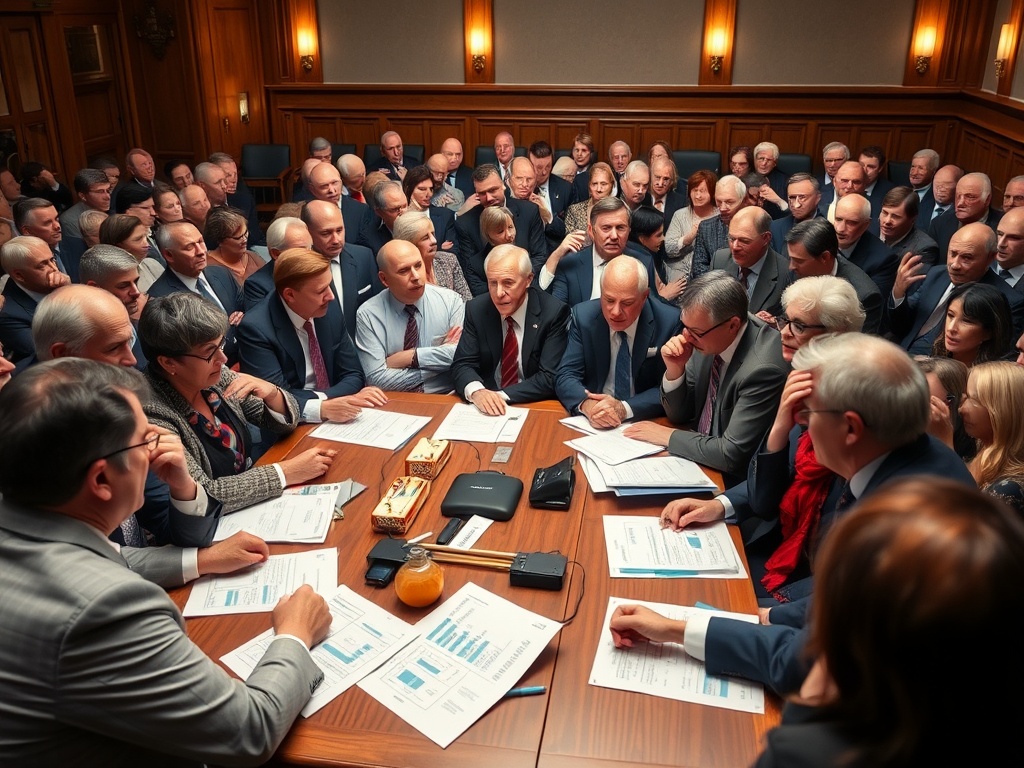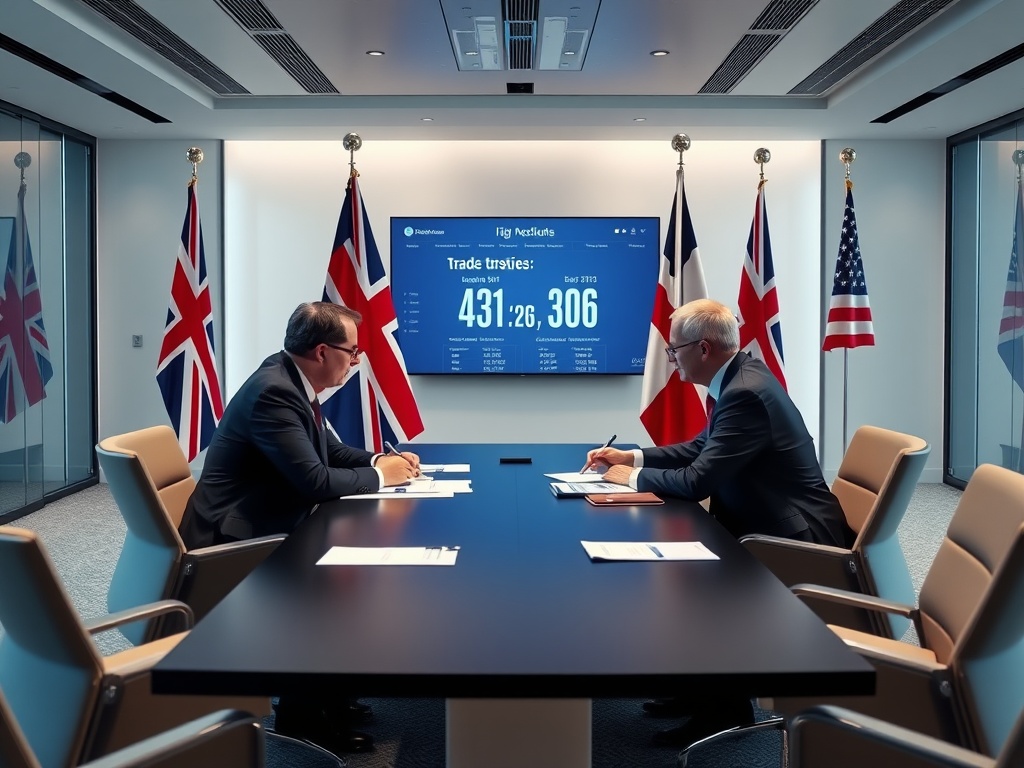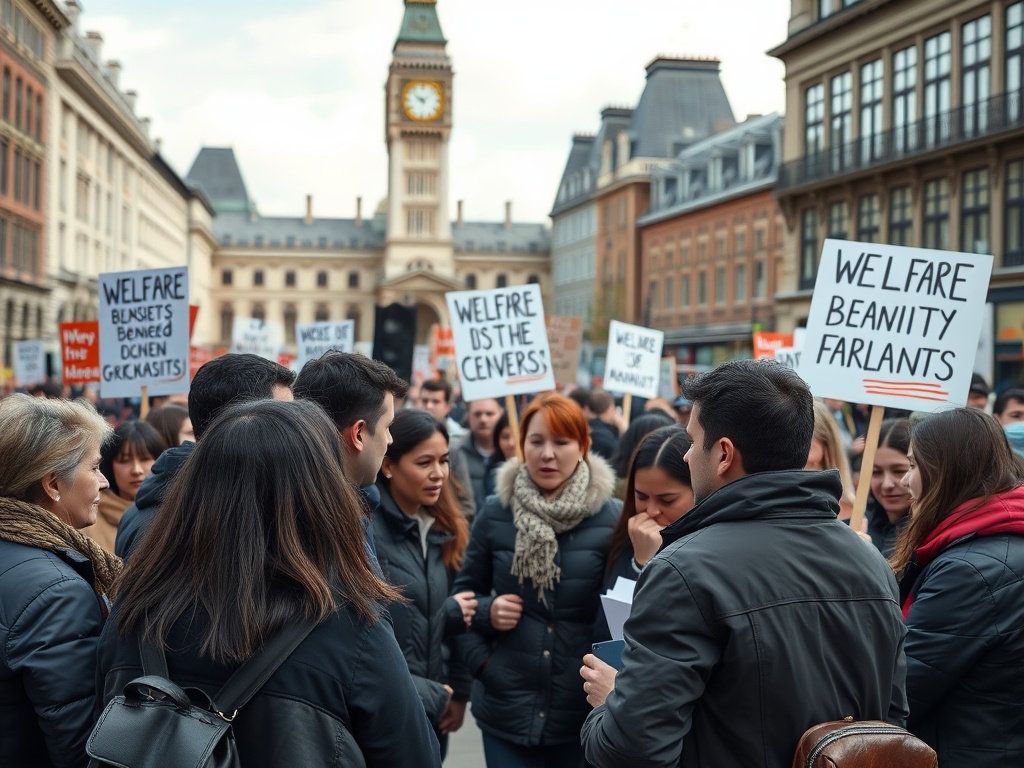UK Defence Spending and Taxation Debate Heats Up

The United Kingdom is facing increasing pressure to enhance its defence budget, prompting discussions among ministers about the possibility of raising taxes targeted at the wealthier segments of society. This comes in the wake of concerns surrounding European security, especially following Donald Trump’s controversial proposals for peace talks regarding Ukraine, which appear to sidestep both the UK and its European allies.
Labour leader Sir Keir Starmer emphasized the need for the UK and its EU partners to “step up” their defence expenditures to safeguard Ukraine. This call for action comes as the US President’s diplomatic overtures to Vladimir Putin have created uncertainty about future security arrangements in Europe. With the Prime Minister and Chancellor Rachel Reeves grappling with rising inflation and dismal economic forecasts, the challenge lies in balancing the urgent need for increased defence funding against a backdrop of potential budget cuts.
Reports have surfaced indicating that Whitehall departments may face real-terms budget reductions of up to 11% by 2029, ahead of the upcoming spring statement and spending review. In light of this, prominent Labour figures have urged Starmer and Reeves to explore tax increases as a means of financing higher defence spending, rather than resorting to cuts in public services. One minister suggested to The i Paper that there might be a “political justification for a special income tax on higher earners to support national defence.” The minister further commented, “Who could oppose the idea of ‘those with the broadest shoulders’ contributing more to ensure the security of our nation, aside from Reform?”
Another minister highlighted that if the government were genuinely committed to increasing defence spending, it would need to clearly articulate how this would be funded. They argued that a well-structured approach could potentially provide a significant boost to the UK economy.
A Labour insider expressed concerns that cutting public services to facilitate increased defence spending could fracture the Labour coalition and Parliamentary party. They asserted that the only viable solution would be to secure funding through taxes on the ultra-wealthy or by increasing borrowing.
A Labour MP added that the ongoing Ukraine crisis should catalyze a fundamental shift in government policy, suggesting that taxing the wealthy could be part of a broader strategy to put the UK on a “war footing.” This MP stated, “Given the current trajectory of the debate, Reform may find themselves on the wrong side of public opinion. However, if the cost of increased defence spending translates to an 11% cut across the board, the narrative could shift.” They emphasized the need for the Chancellor to acknowledge the changing circumstances and adopt a completely new approach.
Despite the Chancellor’s commitment not to raise taxes on “working people,” any alteration to direct taxation could expose her to criticism from the opposition for breaching her promise. In November, Reeves assured businesses that she would not resort to additional borrowing or increased taxation following the Budget.
Nevertheless, some Labour figures believe that it would be challenging for the Conservatives to oppose a tax increase motivated by the need for defence against Putin’s aggression. Possible indirect taxation measures could involve hiking capital gains tax or continuing the freeze on tax bands, which would inevitably pull more individuals into higher tax brackets as wages increase.
As inflation unexpectedly surged to 3% on Wednesday, Treasury Minister James Murray stated that the government would “take necessary actions to protect our national security,” reaffirming the importance of making fiscal decisions that ensure economic stability, crucial for fostering investment and growth.
Read Next
- DEFENCE
- I’m an ex-British soldier who fought in Ukraine – Starmer’s plan is too late
Isabel Stockton from the Institute for Fiscal Studies remarked to The i Paper that the Chancellor could experience a short-term financial windfall due to inflation exceeding expectations, with prices rising by 3% in the year up to January. Stockton noted, “Increased inflation tends to push people into higher tax bands, which can be beneficial for public finances.” However, she cautioned that lower real-term growth would adversely affect everyone, and the possibility of elevated interest rates persisting for an extended period to curb inflation could strain the public balance sheet, as the economist pointed out.
The Treasury has been contacted for comments regarding the potential for tax increases in light of these discussions.




